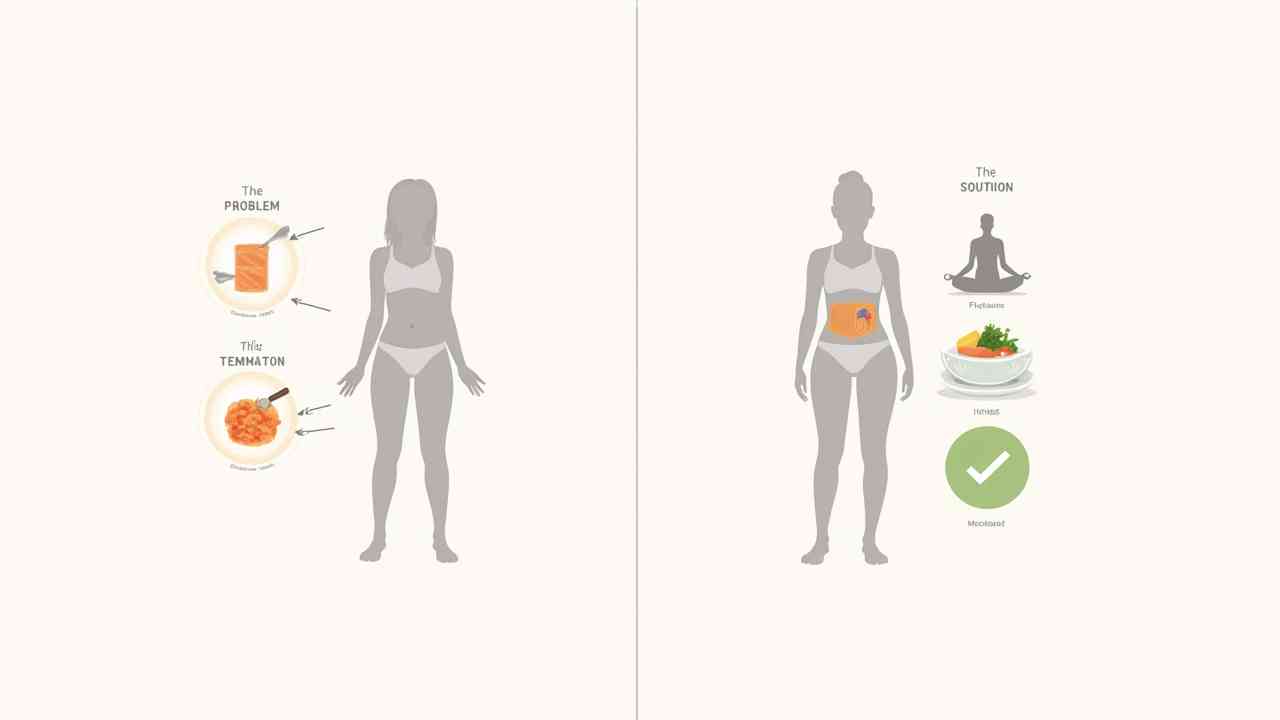
⚖️ Perimenopause and Sudden Weight Gain: A Doctor's Guide to Why It Happens
⚖️ A Doctor's Guide to Perimenopause and Sudden Weight Gain ⚖️
For many women in their 40s and early 50s, a frustrating and confusing change can occur. Despite not changing your diet or exercise habits, the number on the scale starts to creep up, and the weight seems to settle stubbornly around your belly. This perimenopause sudden weight gain is a very real and common experience.
It is important to know that you are not alone, and it is not your fault. This shift is primarily driven by the complex hormonal fluctuations that define the perimenopausal transition. The great news is that by understanding the causes, you can adopt effective strategies to manage your weight and feel your best.
This guide will explain the hormonal reasons behind this change and provide a clear action plan. ✅
🤔 Why Does This Happen? (The Hormonal Shift)
The weight gain during perimenopause is not just about calories; it's about chemistry. The hormonal rollercoaster has a direct impact on your metabolism and where your body stores fat.
1. What is Estrogen's Role?
As you enter perimenopause, your estrogen levels begin to fluctuate and decline. This has a major effect on your body. Lower estrogen levels can lead to insulin resistance, which makes it harder for your body to process sugar and can promote fat storage. It also causes a shift in fat distribution, moving it from the hips and thighs to the abdomen.
2. What is the Cortisol Connection?
Perimenopause can be a stressful time, often accompanied by poor sleep and mood swings. This can lead to an increase in the stress hormone cortisol. High cortisol levels are strongly linked to an increased appetite, cravings for unhealthy food, and, most importantly, the storage of visceral fat deep in the belly.
3. Why Does Muscle Mass Decrease?
As we age, we naturally begin to lose muscle mass. This process is called sarcopenia. Muscle is your body's metabolic engine. The less muscle you have, the slower your resting metabolism will be, meaning you burn fewer calories throughout the day. This makes it much easier to gain weight.
- What Can You Do About Perimenopausal Weight Gain?
You can fight back! The key is a holistic approach that focuses on balancing your hormones naturally through diet, exercise, and lifestyle changes.
1. Prioritize Protein at Every Meal
Protein is your number one ally. It helps to keep you feeling full and satisfied, which manages cravings. It is also essential for preserving and building precious, metabolically active muscle. Aim to include a source of lean protein with every meal.
2. Make Strength Training Non-Negotiable
This is the most powerful tool you have to combat the metabolic slowdown. Lifting weights or doing resistance exercises 2-3 times per week is the best way to build and maintain muscle mass. This will keep your metabolism fired up. 🏋️♀️
3. Fill Up on Fiber
Focus on a diet rich in high-fiber foods, especially vegetables. Fiber helps to stabilize your blood sugar, which is crucial for managing insulin resistance. It also helps you feel full, which can reduce your overall calorie intake.
4. Manage Stress and Prioritize Sleep
To fight the effects of cortisol, you must make stress management a priority. This can be as simple as a 10-minute daily walk, deep breathing exercises, or meditation. Aiming for 7-9 hours of quality sleep per night is also essential for hormonal balance. The cozy, cool evenings of autumn are a perfect time to establish a new, calming bedtime routine. 🍂